The vast hall is decorated with mosaics narrating three cycles of Greek-Roman mythology: the
twelve labours of Hercules
in the central hall
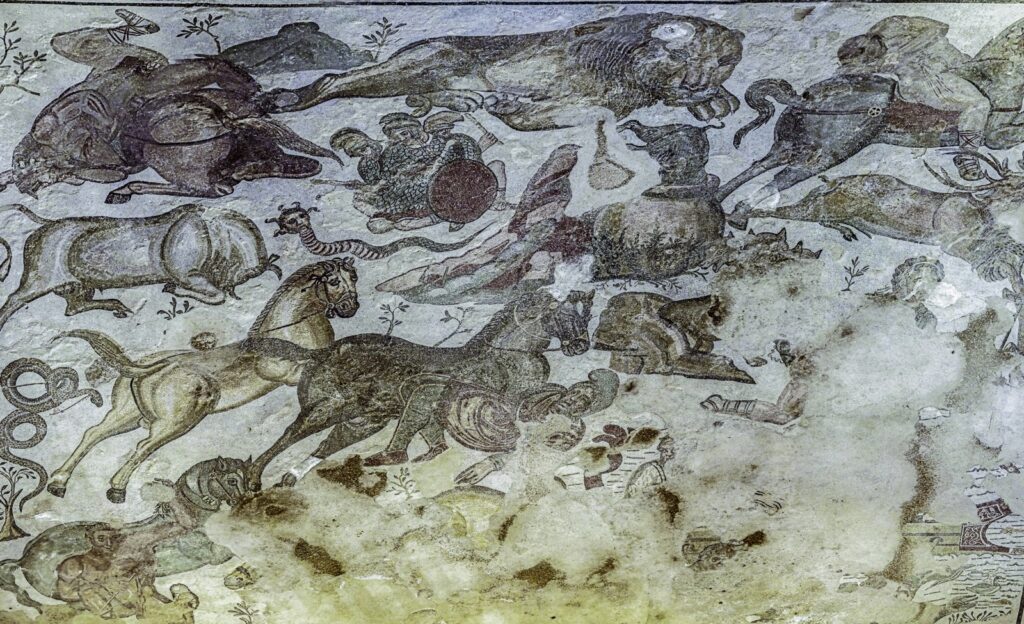 and the myth of
Marsyas
and the myth of
Marsyas
in the northern apse,
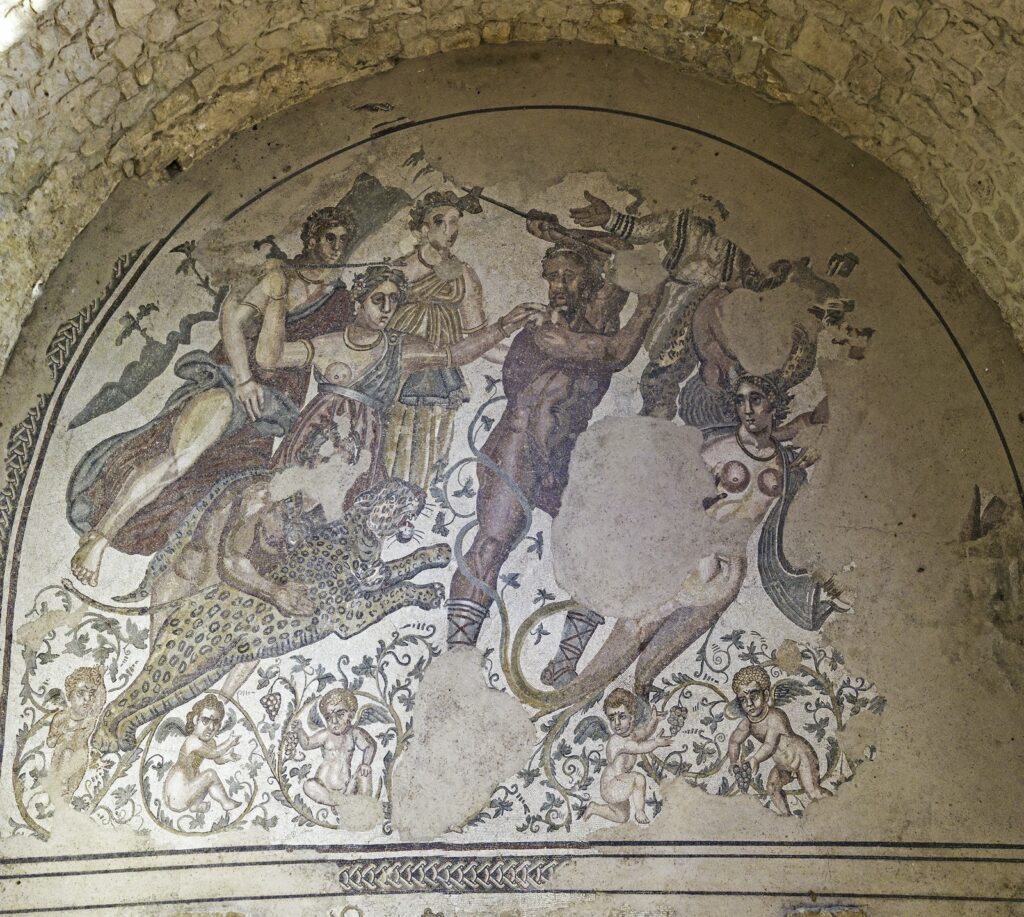 the
gigantomachy
the
gigantomachy
in the eastern apse
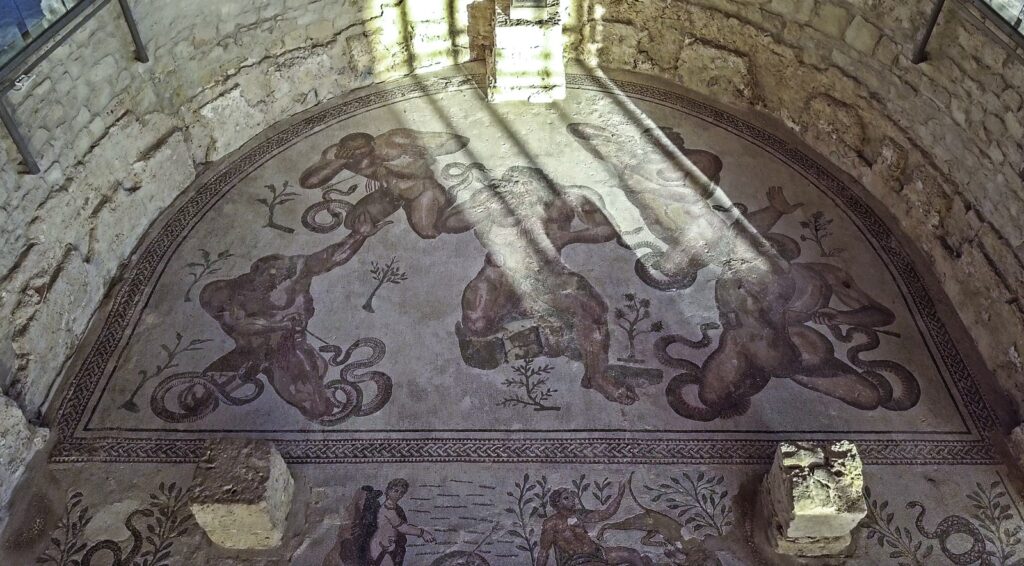 and the myth of
Lycurgus and Ambrosia
and the myth of
Lycurgus and Ambrosia
in the southern apse.
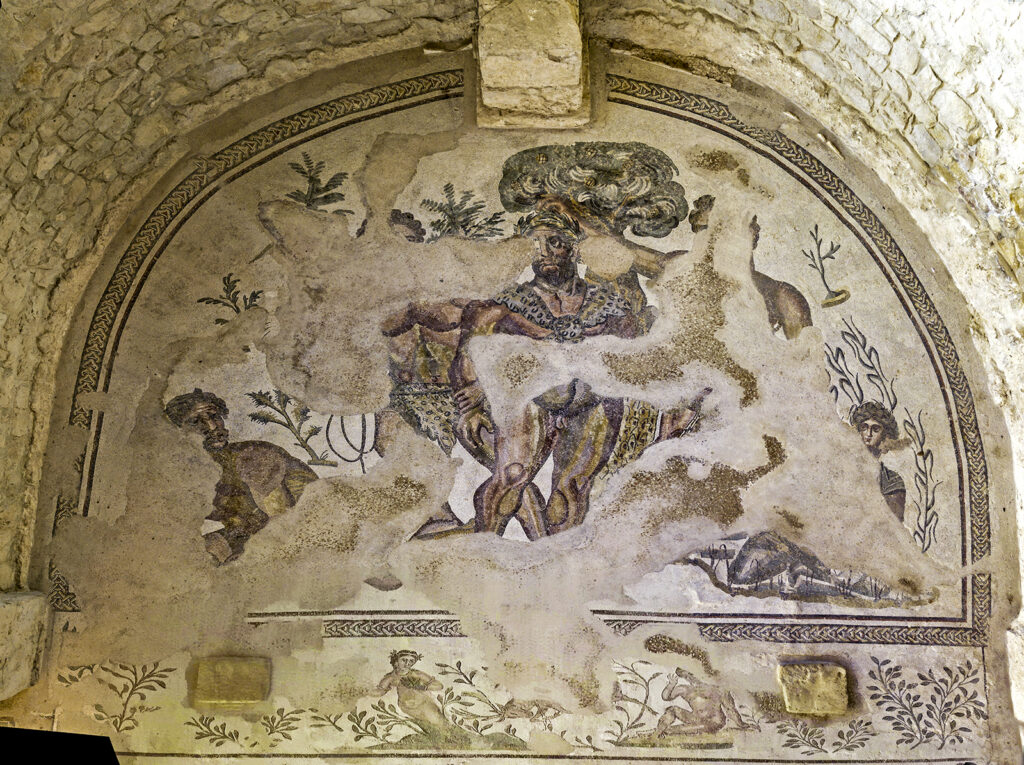 In the floor mosaic of the twelve labours of Hercules, the hero protagonist is never depicted but is replaced by the effects of his strength against defeated enemies.
In the floor mosaic of the twelve labours of Hercules, the hero protagonist is never depicted but is replaced by the effects of his strength against defeated enemies.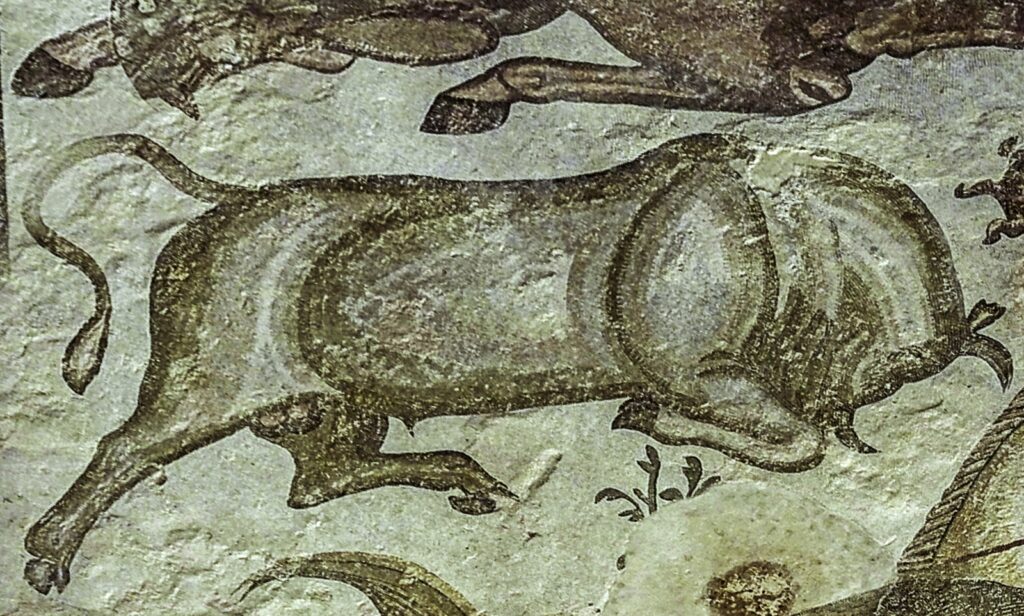
In the gigantomachy, the epic struggle between the gods of
Olympus
and the Giants, the latter, with their powerful and expressive bodies, are portrayed as anguipeds, namely, with serpents in place of the part below the knee.
Finally, in the last scene, linked to the Dionysian theme, we can observe the moment in which Lycurgus, King of Thrace and hostile to the worship of the god of wine, tries to kill Ambrosia (a follower of Bacchus) with a double-headed axe, who is providentially aided by a procession of maenads (female followers of the god of wine) and transformed into vines by
Dionysus
himself.
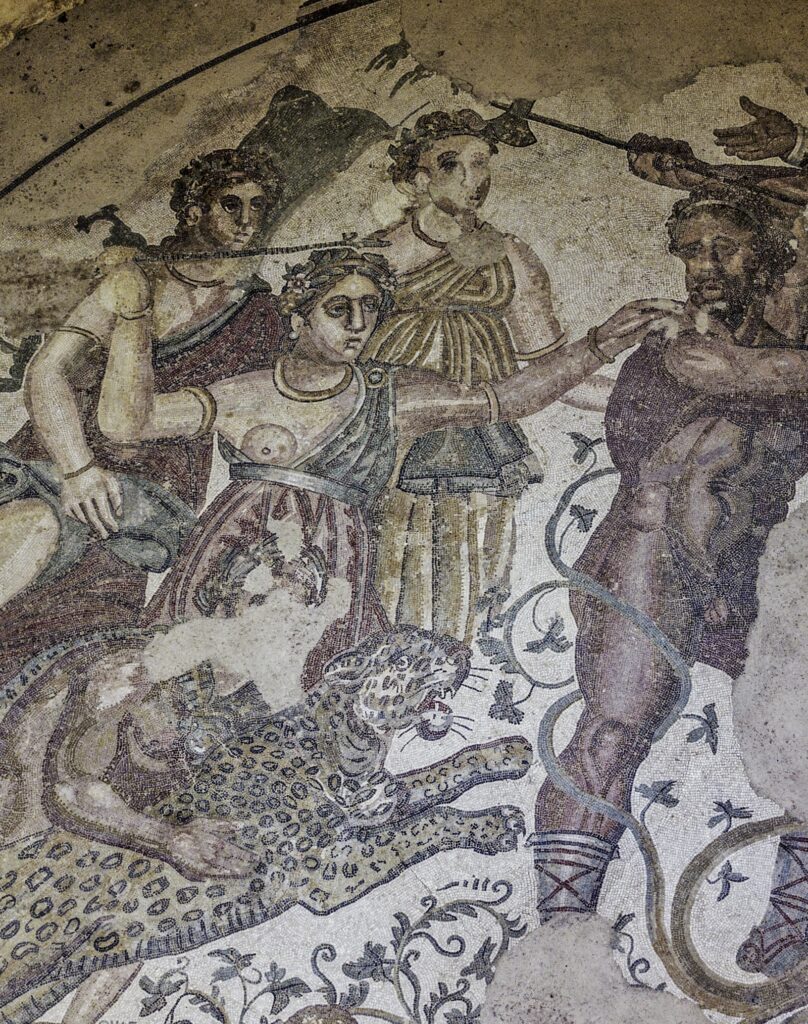 As this myth reveals, a particularly frequent subject in the mosaics of the late antiquity villa are the metamorphoses, a symbol of the eternal relationship between man and surrounding nature.
As this myth reveals, a particularly frequent subject in the mosaics of the late antiquity villa are the metamorphoses, a symbol of the eternal relationship between man and surrounding nature.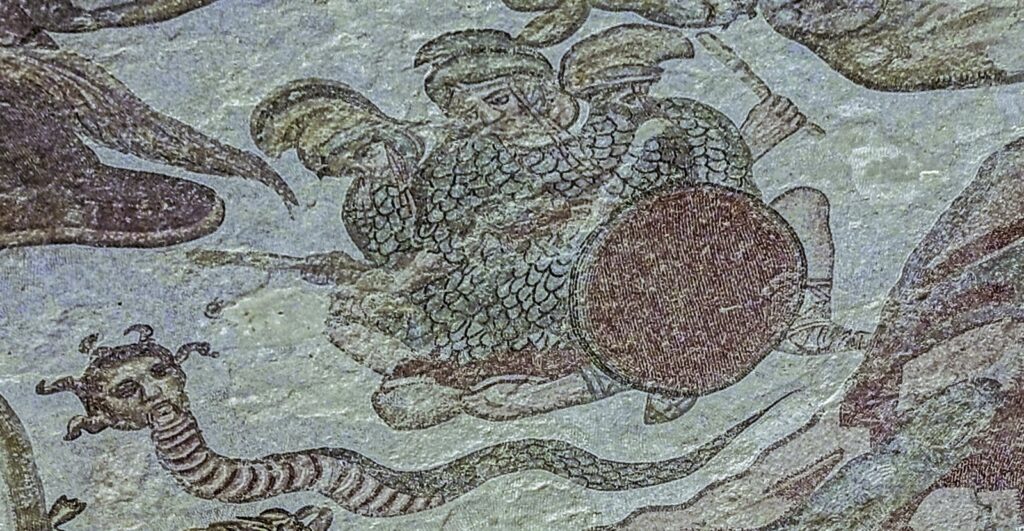 As in other rooms of the villa, the depicted scenes conceal edifying meanings.
As in other rooms of the villa, the depicted scenes conceal edifying meanings.